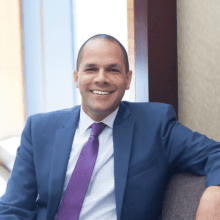Over the last 15 months, the myFutureNC Commission has facilitated conversations on the critical role postsecondary attainment plays in ensuring that North Carolinians are prepared to meet the needs of our growing workforce and economy. The 45 Commissioners represent every corner of North Carolina and span the education, business, philanthropy, government, non-profit, and faith-based communities. Over the last 18 months, the Commission has held five meetings that featured presentations by resource experts, conducted nine listening sessions across the state, and commissioned a poll that measured North Carolinians’ opinions about the state of education. The Commission has successfully elevated the importance of this topic and sharpened the focus of conversations among practitioners and policymakers across the education continuum.
In order to promote public engagement with this work, the Hunt Institute launched the myFutureNC Blog Series in February of 2018 to highlight the work of the Commission and share key takeaways from the Commission’s meetings and research. Over the course of the past year, we have heard from resource experts, legislators, and commissioners from early learning, K-12, postsecondary, and the workforce to create a full picture of what it will take for North Carolina to set, and achieve, a postsecondary attainment goal.
By ensuring that all North Carolinians have the opportunity to complete a high-quality postsecondary degree or credential, we are also ensuring that our economy is competitive on a regional, national, and global scale. Looking ahead, the Commission’s work must include policy recommendations focused on ways in which all of North Carolina’s regions—regardless of geographic or demographic makeup—can increase educational attainment. At our recent Education Policy Retreat, we welcomed a bipartisan cohort of newly elected members of the North Carolina General Assembly. Over the course of the Retreat, legislators heard from resource experts and veteran legislators about a variety of topics spanning the education continuum, including the importance of postsecondary attainment and the work of the myFutureNC Commission.
MC Belk Pilon, president of the John M. Belk Endowment, moderated a discussion with myFutureNC Commissioners Superintendent Mark Johnson of North Carolina Public Schools, Rocio Gonzalez, Executive Director of the Latin American Chamber of CCommerce-Charlotte, and President Peter Hans of the North Carolina Community College System. Legislators asked the panelists about topics ranging from workforce training programs and apprenticeships to ways to ensure equity in access to postsecondary opportunities. It is evident that legislators are ready to engage in meaningful, solutions-oriented conversations about setting, and achieving, a postsecondary attainment goal.
On Feb. 20, 2019, myFutureNC Commission Co-Chairs Peter Hans, Dale Jenkins, and Andrea Smith will join education leaders and policymakers to formally announce North Carolina’s postsecondary attainment goal, and next steps of the Commission. Through continued conversation, legislative engagement, and the support of stakeholders from around the state, North Carolina’s shared vision of setting a postsecondary attainment goal will be realized, and the work of meeting the goal will begin. It has been an honor to serve as a subject matter expert to the Commission and my colleagues at the Hunt Institute and I look forward to continuing the work that we started over a year ago.
Editor’s note: This perspective was first published by the Hunt Institute. It has been posted with the author’s permission. The John M. Belk Endowment supports the work of EducationNC.



